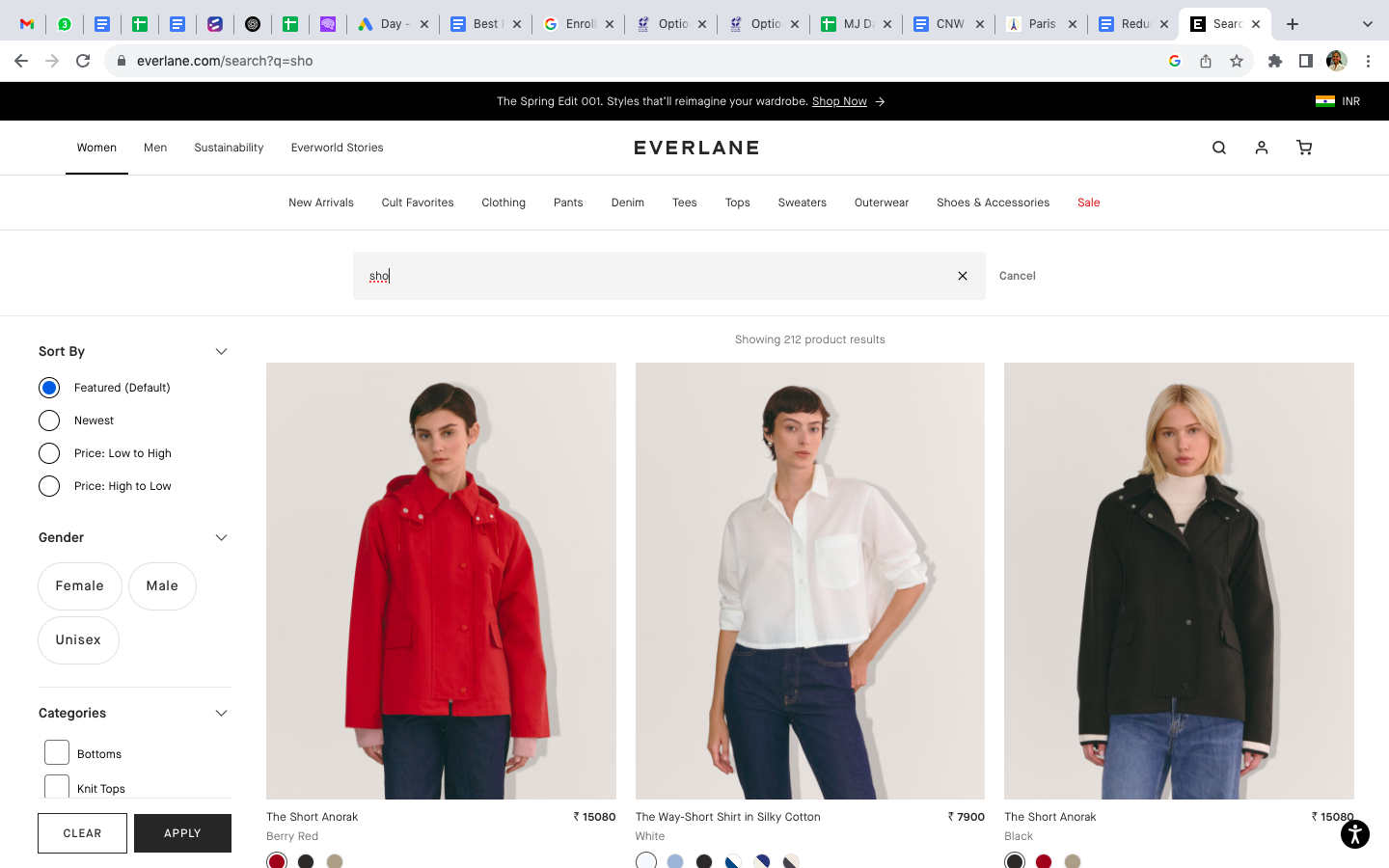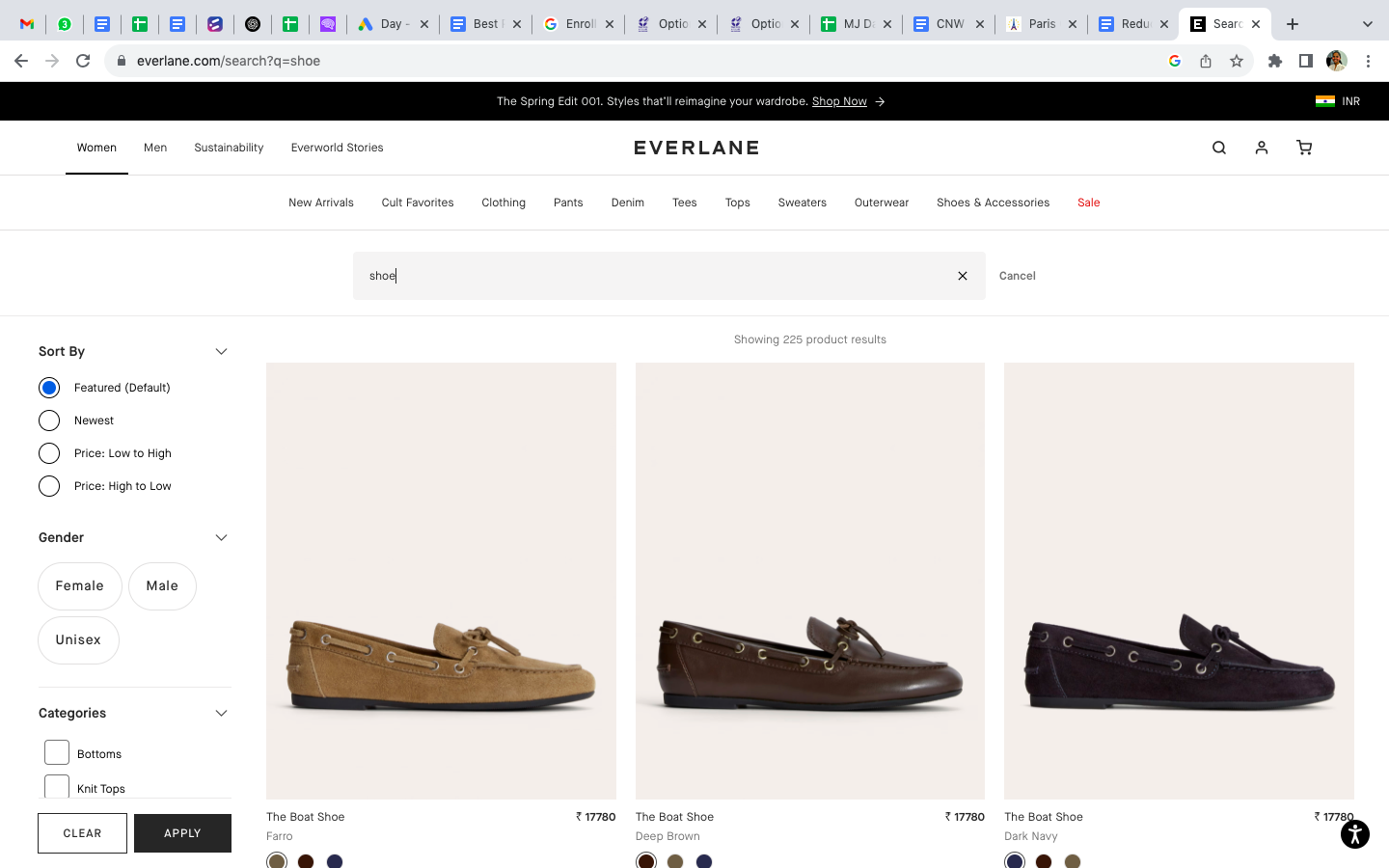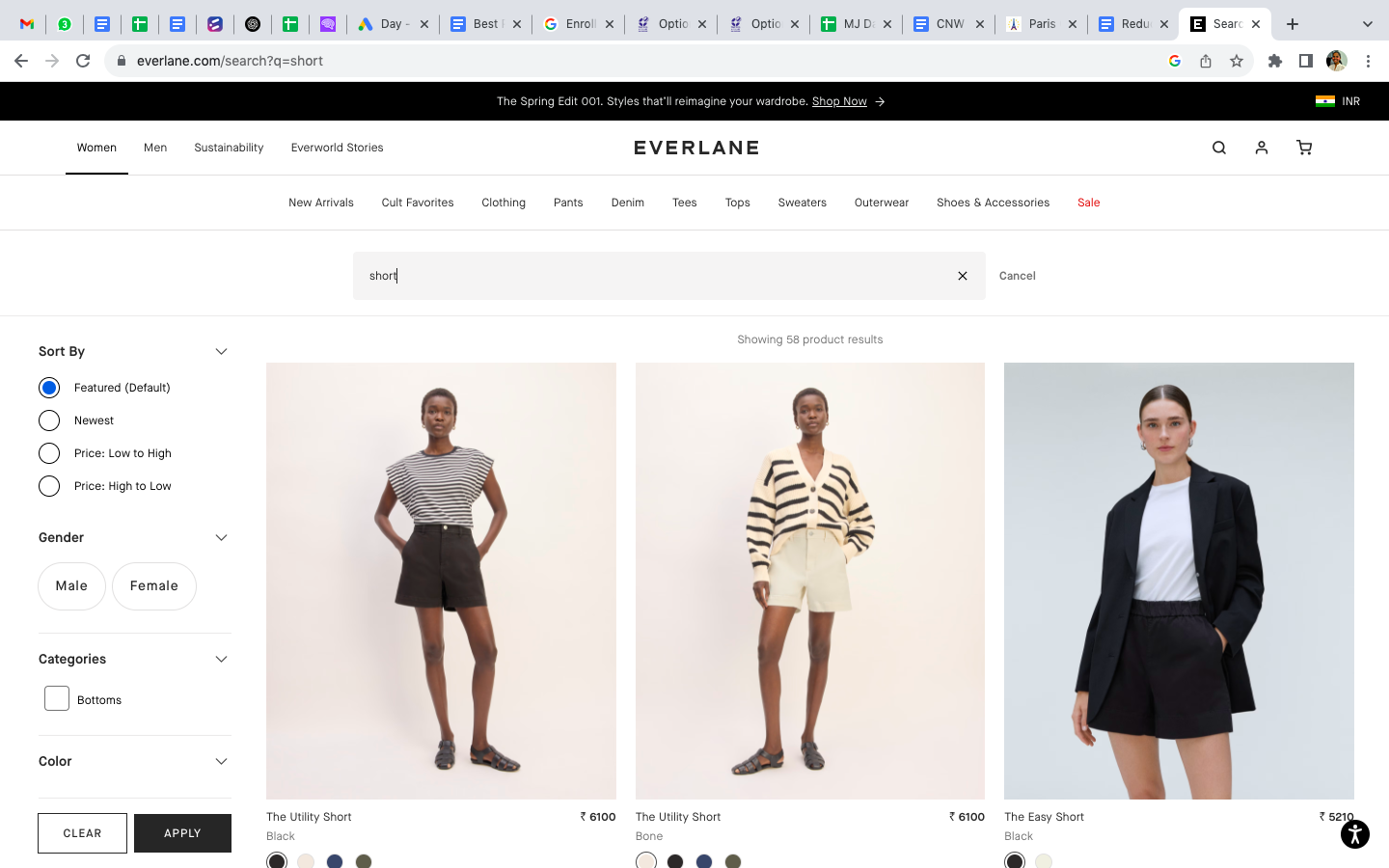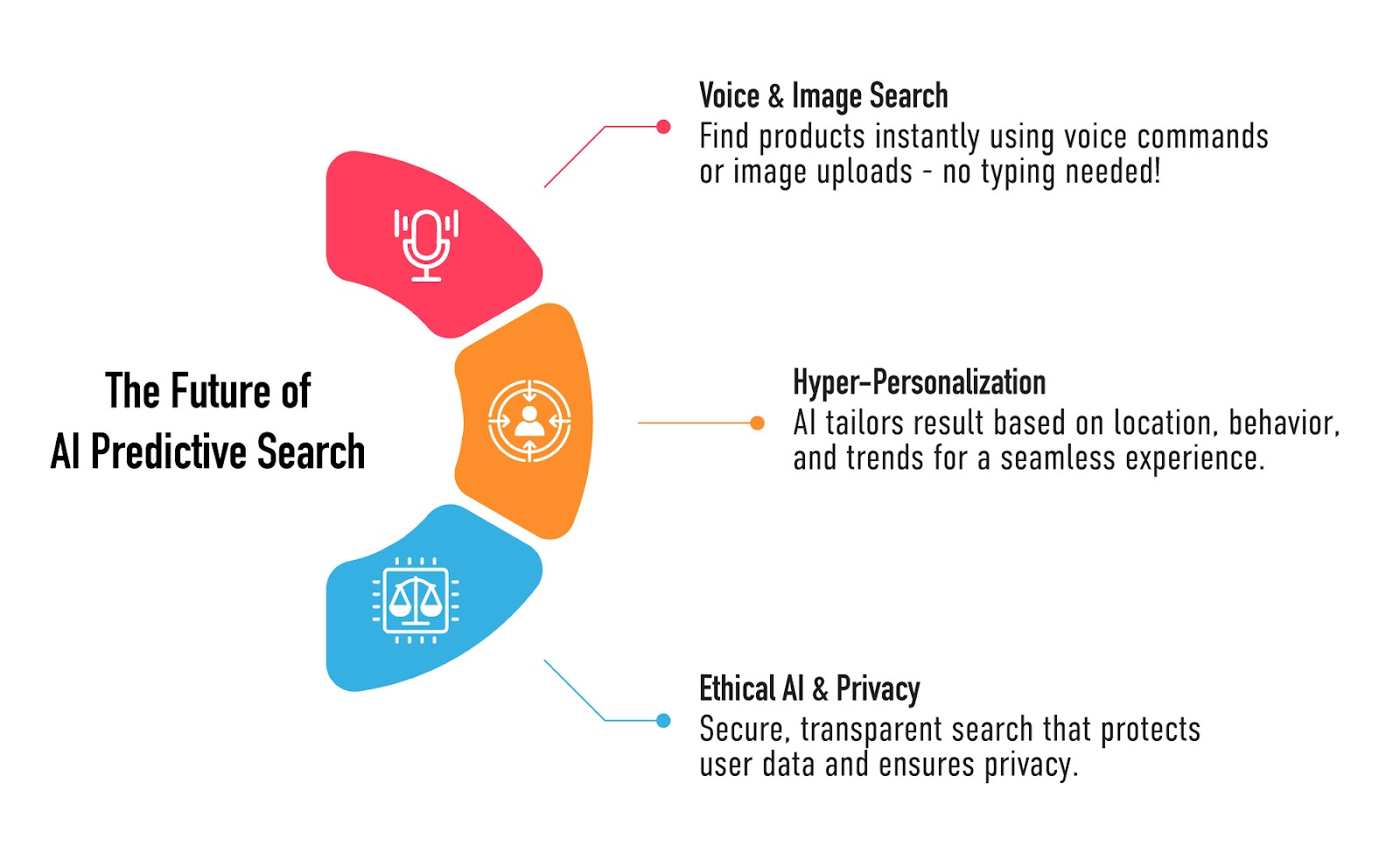Algolia partner Ziffity Solutions LLC joins us to discuss how AI predictive search came to be, and how it transforms user engagement today.
Imagine your customer is searching for the perfect pair of running shoes on your ecommerce store. But, oops! They type in “runing shos” by accident. Instead of the results they expected, they get a list of completely unrelated items. “Shows.” “Shots.” Somehow, even “Ghosts!” Frustration builds as they scroll through irrelevant products. Eventually, they abandon the site altogether. This isn’t just a minor inconvenience. It’s a missed opportunity for both the customer and the business.
You invest time and money to bring customers to your website. But if users can’t find what they’re looking for because of a poor search experience, they get frustrated and leave. This leads to high bounce rates and lost sales.
Finding the right product online isn’t always easy. Spelling mistakes, unclear searches, and too many irrelevant results make shopping online harder than it should be.
That’s where AI predictive search helps. Google set the standard, being the first to implement an autocomplete feature. Very quickly, users grew to expect predictive search. Amazon, Shopify, Spotify, and Walmart have all implemented predictive search capabilities to show popular queries, offer contextual suggestions, avoid typos, and filter suggestions, based on the user’s location or preferences.
Today, organizations of all sizes offer some form of autocomplete. This article discusses the mechanics of AI predictive search, its applications in practice, and how it significantly impacts user engagement. We’ll also look at how companies like Algolia are leading the charge in delivering seamless, intelligent ecommerce site search experiences.
Understanding AI predictive search
Predictive search is an online search approach that aims to anticipate the search needs of a user by making suggestions related to their queries as they type in a search bar.
The final goal is to save time for the user by letting them click on the suggestions instead of forcing them to complete their queries. You might think the time it saves will not be substantial, but if we take all the search queries made globally every day, we are facing a full 200 years of search saved daily.
Predictive search core functionality, known as autocomplete, autosuggest, or find-as-you-type, has become mainstream, and most website visitors expect search bars to provide it.
Do autocomplete and predictive search mean the same thing? Not exactly, but they’re often used interchangeably. Think of predictive as the approach and autocomplete as the functionality.
How it works
AI predictive search is like having a smart assistant that understands what you need, even before you finish typing. It relies on machine learning algorithms to study past searches and user behavior, constantly refining suggestions to become more accurate. Natural Language Processing (NLP) makes sense of the way people actually type, recognizing slang, typos, and even unclear phrasing.
Auto-completion and correction help ensure that you get relevant results, even if your query isn’t perfect. This is thanks to contextual analysis, based on factors like location, time, and search history. The AI search function then fine-tunes the results, making searches faster, smarter, and more intuitive over time.
For instance, let’s say a customer types “snakr” on a fashion ecommerce site. Algolia's predictive search tool would instantly suggest “sneakers” along with popular brands. This not only saves time but also enhances the overall shopping experience.

Results when searching “snakr” on Everlane
The same typo on an online pet store may receive a suggestion of “snake”, while it may prompt “snacks” on an online grocery store.
Algolia's AI-powered search improves user experience by understanding search intent. It uses semantic search to interpret the meaning of queries instead of just matching keywords. This helps provide more accurate and relevant results.
Algolia also supports voice and visual search. As mobile usage grows, people search in different ways. Voice and visual search make it easier to find what they need. Algolia’s AI is designed to handle these searches efficiently.
Benefits for users

Why invest in implementing predictive search? What is the business value? Predictive search increases conversion rates as it saves time for users. It’s an especially important functionality when shopping from a smartphone, with its compact keyboard. The predictive search feature in the application reduces friction for users, making it less likely that they’ll abandon their search.
Here are a few of the benefits of using predictive search:
- It reduces search time by offering suggestions, which means the user rarely has to enter their entire query
- Predictive search offers a more personalized experience informed by users’ previous queries, location, and preferred categories
- It educates users about your site and product, and helps users find what they’re looking for by providing relevant images and descriptions for certain products
- It increases sales by showing users appropriate and useful suggestions based on popular searches and bestselling products
- By making content available in a more optimized fashion, it increases and improves the overall user experience
- It increases the number of relevant queries and offers optimized results
Predictive search helps to avoid confusion caused by typos and errors, and offers faster results by filtering the data.
Real-world success stories
AI predictive search is revolutionizing the way businesses function. Here's one example of its real-world impact.
Ecommerce
A compelling success story comes from Algolia’s work with Everlane, a sustainable fashion brand. By integrating Algolia’s NeuralSearch solution, Everlane automated and optimized its search functionality.
The result? A 5% increase in conversion rates, a 45% reduction in “no results” occurrences, and an 8% boost in click-through rates. This transformation allowed customers to quickly find the products they sought, enhancing their shopping experience and the brand’s bottomline.

As you search for “sho”…

… and add in more letters…

… depending on what you want to find!
Content platforms
AI predictive search is also a potent tool for content platforms like Netflix or news websites in an effort to keep users engaged and bring in more.
News360 is a news reader that employs AI to make your feed personal to you. Roughly 70% of the articles you read are driven by what you’ve read and engaged with in the past. It tracks your interests and presents you with stories that align with them, ensuring you get news on topics you’re interested in.
MovieLens is a web-based system that suggests movies based on your ratings and tastes. Created by GroupLens Research at the University of Minnesota, MovieLens applies collaborative filtering algorithms to recommend films you may like.
News portals employ predictive search so that the content published in a portal can be presented based on a user's reading habits and interests. For example, if a reader is interested in reading only about technology, the latest tech updates are presented first. This personalized method can enhance the time spent on the site by 25%. This is due to the fact that users tend to spend more time exploring content relevant to them.
The impact on user engagement
Increased user satisfaction
Predictive search enables users to easily find what they want. They get the right results within a few seconds, keeping users happy and bringing them back for more.
Higher conversion rates
If the search results match what a user likes, they are more likely to take action. Personalized searches increase relevance, resulting in more sales and better business results.
Improved brand loyalty
When users feel that a brand understands their needs, they trust it more. This results in users visiting the brand and making purchases multiple times.
Enhanced user retention
Providing results that are relevant to the users keeps them engaged on the platform, resulting in regular visits and improved business.
The future of AI predictive search

Advancements in AI
AI-driven predictive search is set to change the way we search online. Imagine a world where voice and image search is the norm. You could snap a picture of a dress and find similar ones in seconds, available to buy – and you didn’t have to type a word!
And it doesn’t stop there. Predictive search understands you personally, using data like your location, weather, and even your social media activity. This is called hyper-personalization. It gives you search results that truly fit your needs.
Ethical considerations
Privacy concerns in data analytics and AI stem from the ethical dilemmas surrounding the collection, storage, and utilization of sensitive information, raising questions about data privacy and the protection of personal data.
Within this landscape, individuals also grapple with the challenge of determining who has access to their personal information, how it is being used, and to what extent their privacy rights are being respected. As data analytics technologies advance, the lines between data collection for legitimate purposes and potential privacy invasions can become blurred, further complicating ethical considerations. Organizations must navigate the delicate balance between utilizing the strength of data-driven insights and safeguarding individuals’ right to privacy.
AI predictive search is a strategic asset for any ecommerce agency, such as Ziffity Solutions LLC, in 2025. This advantage reduces frustration on the side of the customers, while for the business it increases sales and generates loyalty by providing customers with what they want without difficulty. As algorithms grow smarter, businesses that adopt AI-driven search solutions will be able to deliver frictionless, intuitive experiences.
The future of ecommerce integration services is intelligent, tailored, and user-focused. Are you prepared for the challenge?
Stop losing customers to bad search experiences and discover how Algolia's AI-powered search can transform your ecommerce site. Schedule a demo today and turn user frustration into a lifelong engagement.
Starten Sie kostenlos
Die weltweit fortschrittlichste KI-SucheAI Browse
Von KI erstellte Kategorie- und SammlungsseitenAI Recommendations
Vorschläge überall auf der User JourneyMerchandising Studio
Datengestützte Kundenerlebnisse, ohne CodeMerchandising Studio
Datengestützte Kundenerlebnisse, ohne CodeAnalytics
Alle Ihre Erkenntnisse in einem DashboardUI Components
Pre-built components for custom journeys.png)






